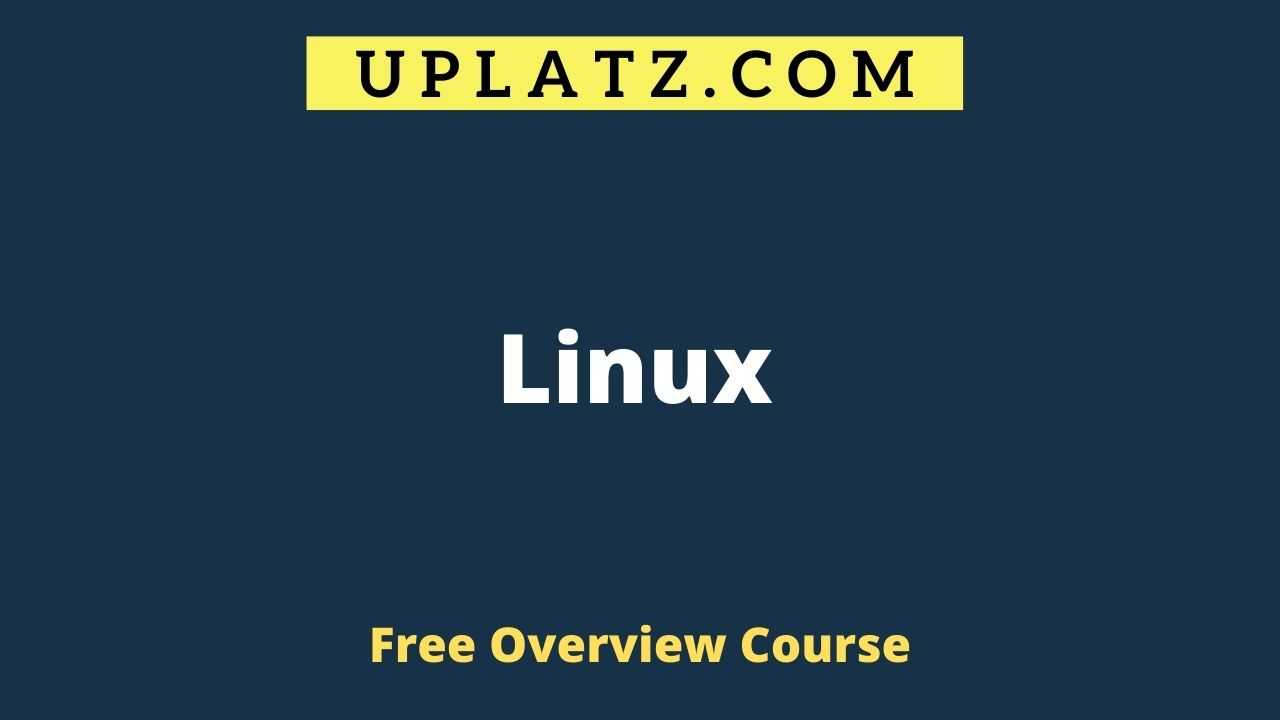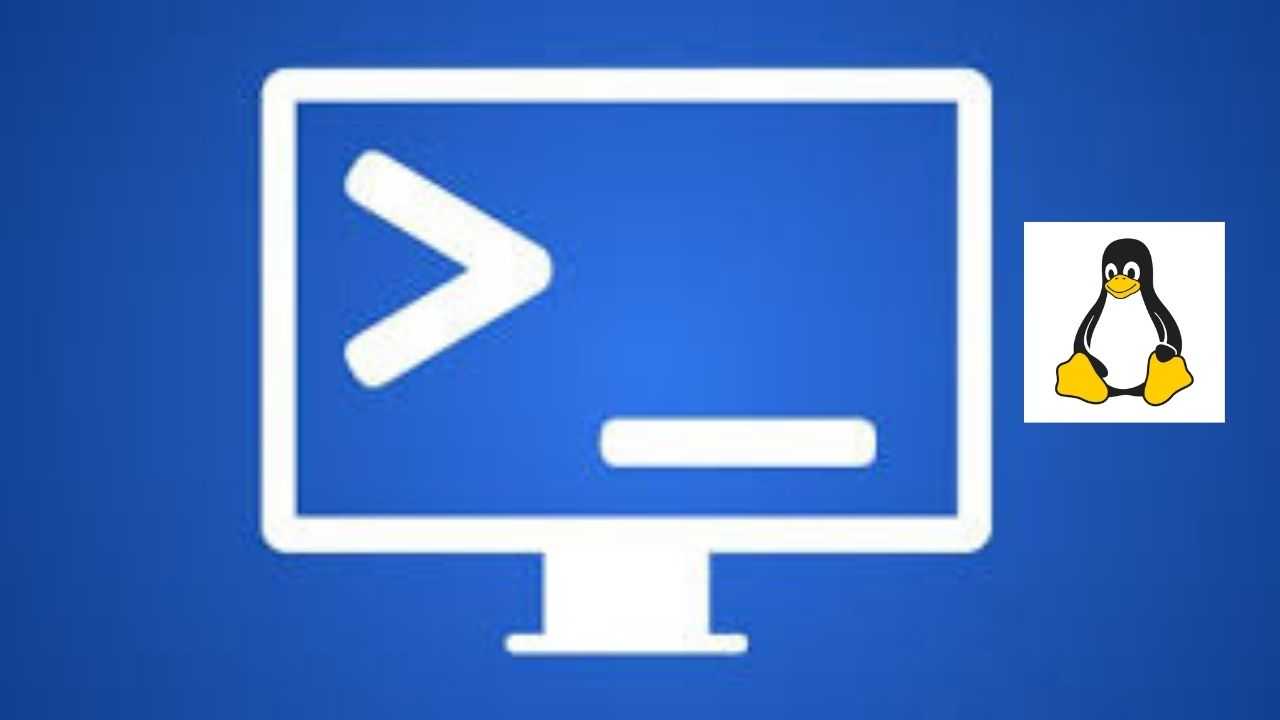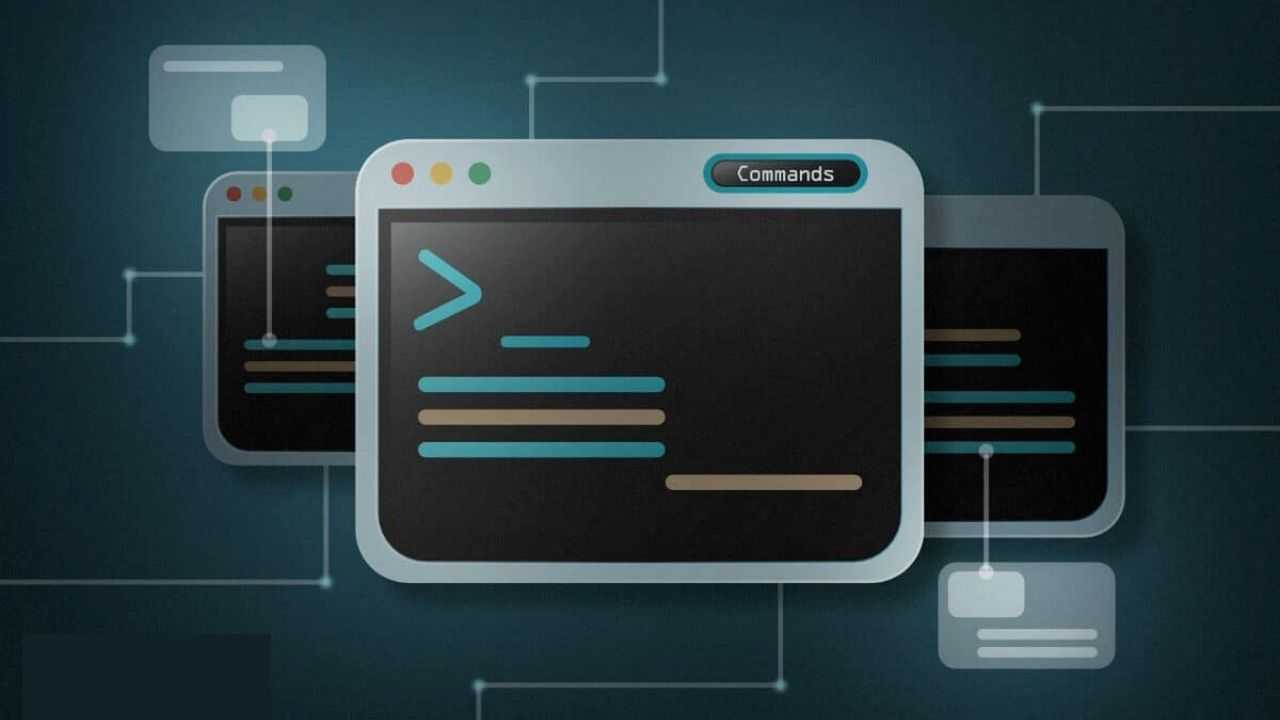Overview Course - Linux
Learn about logical and systematic approach along with deep and extensive knowledge on Linux Utilities and its functions. View Course Curriculum
Price Match Guarantee
Full Lifetime Access
Access on any Device
Technical Support
Secure Checkout
Course Completion Certificate
View Course Curriculum
Price Match Guarantee
Full Lifetime Access
Access on any Device
Technical Support
Secure Checkout
Course Completion Certificate
 78% Started a new career
Enroll Now
78% Started a new career
Enroll Now
-
 88% Got a pay increase and promotion
88% Got a pay increase and promotion
Students also bought -
-

- Linux Shells and Shell Programming (Bash)
- 10 Hours
- GBP 12
- 177 Learners
-

- Linux System Administration
- 5 Hours
- GBP 12
- 28 Learners
-

- Unix - Linux - Shell Scripting
- 25 Hours
- GBP 29
- 347 Learners

This is an overview course on Linux while the complete detailed-level Linux course is available at -
1. Linux Shells and Shell Programming (Bash) - https://training.uplatz.com/online-it-course.php?id=linux-shells-and-shell-programming-bash-297
2. Linux System Administration - https://training.uplatz.com/online-it-course.php?id=linux-system-administration-296
3. Linux Utilities - https://training.uplatz.com/online-it-course.php?id=linux-utilities-295
Linux is an open-source computer operating system which is originally developed for use on personal computers but now widely used on smartphones, servers, mainframe computers, supercomputers and more. Linux created by Linus Torvalds at the University of Helsinki in 1991, the operating system is free to install and redistribute for any purpose, which has helped to make it the most popular computer operating system in use today. Versions of the Linux operating system are mainly used on tablets, smartphones and other devices using the Android OS, web servers, smart TVs, gaming devices and much more. The Linux Foundation was created in 2000 to promote the use and development of Linux. The Foundation sponsors the further development of the Linux OS by Torvalds and conducts Linux training certification courses, manages open-source projects and hosts Linux conferences and events around the world.
Linux boasts a wide array of key features that contribute to its popularity and versatility:
Core Features
· Open Source: Linux is free and its source code is available for anyone to use, modify, and distribute. This fosters a collaborative development environment.
· Customizable: Linux offers immense flexibility and customization options, allowing users to tailor the operating system to their specific needs.
· Security: Linux is known for its robust security features, quick vulnerability patching, and strong access controls.
· Stability: Linux is highly stable and reliable, designed to handle heavy workloads and long uptime without issues.
· Performance: Linux is well-optimized for performance and can run efficiently on a wide range of hardware.
· Multi-user Support: Linux allows multiple users to access the system simultaneously, each with their own accounts and permissions.
· Multitasking: Linux can run multiple programs concurrently, allowing users to switch between tasks seamlessly.
· Command-Line Interface (CLI): Linux provides a powerful CLI that allows users to control the system and perform various tasks efficiently.
· Package Management: Linux distributions come with package managers that make it easy to install, update, and remove software packages.
Additional Features
· Portable: Linux can run on various hardware platforms, from desktops and laptops to servers and embedded devices.
· Graphical User Interface (GUI): Linux offers various desktop environments that provide a user-friendly graphical interface.
· Community Support: Linux has a large and active community of users and developers who provide support and resources.
· Regular Updates: Linux distributions release frequent updates that include bug fixes, security patches, and new features.
· Wide Range of Applications: Linux supports a vast array of software applications for various purposes.
Uplatz offers comprehensive courses on Linux that will help you become a successful System Administrator / DevOps Engineer / Cloud Architect. You will receive a Course Completion Certificate awarded by Uplatz, once you complete the full Linux course.
Course/Topic - Linux overview - all lectures
-
In this session we will discuss the Linux basics and shell scripting. This video talks about the history of Linux and the introduction to Linux. Further we will see the Login session in Linux and how to work with the Unix file system (Linux Directories) and what is as operating system.
-
In this session we will discuss about the introductory topics of Shells and Shell Programming. This video talks about the command line interpreters and SSH, variable in shell (local and global export). Further we will talk about the environment variables and how to write a script.
-
In this session we will discuss about soft links and hard links we will also learn how to check file integrity.
The objective of this Linux course is to provide learners with a solid foundation in Linux operating system fundamentals and command-line proficiency, enabling them to effectively manage and administer Linux environments. Participants will gain hands-on experience with essential Linux commands, file system navigation, user and permissions management, and shell scripting. The course also covers advanced topics such as process management, networking, and system security. By the end of the course, learners will be equipped to perform routine system administration tasks, troubleshoot common issues, and leverage Linux’s powerful features for optimizing and maintaining both personal and enterprise-level systems.
The key objectives of a Linux course typically encompass a range of fundamental to advanced skills and knowledge, ensuring that students can effectively use and manage Linux systems. These objectives aim to equip students with the skills necessary to effectively manage and utilize Linux systems in various environments, from personal use to enterprise-level administration. Here are the primary objectives:
- Understanding Linux Fundamentals
· Grasp basic concepts and history of Linux.
· Learn about different Linux distributions and their purposes.
- Command Line Proficiency
· Master essential Linux commands and shell scripting.
· Navigate the file system and manage files and directories.
· Understand and utilize command-line tools and utilities.
- System Administration
· Perform user and group management, including permissions and ownership.
· Configure and manage system services and daemons.
· Monitor system performance and manage system processes.
- Software Management
· Install, update, and remove software packages using package managers (e.g., apt, yum).
· Compile and install software from source.
- File Systems and Storage Management
· Understand and manage different types of file systems.
· Perform disk partitioning, mounting, and unmounting of file systems.
· Use file system management tools to check and repair file systems.
- Networking and Security
· Configure and manage network settings and services.
· Implement basic security practices, including firewall setup and user access controls.
· Understand and apply encryption techniques and secure communication protocols.
- Shell Scripting and Automation
· Write and debug shell scripts to automate system tasks.
· Use scripting to simplify administrative tasks and improve efficiency.
- Troubleshooting and System Recovery
· Diagnose and resolve common system issues.
· Perform system backups and restores.
· Use recovery tools and techniques to repair corrupted systems.
- Advanced Topics (if applicable)
· Virtualization and containerization (e.g., using Docker).
· Configuration management with tools like Ansible, Puppet, or Chef.
· Understanding and implementing cloud services and infrastructure.
- Practical Application and Certification Preparation
· Apply learned skills in real-world scenarios through hands-on labs and projects.
· Prepare for Linux certification exams such as CompTIA Linux+, LPIC-1, or Red Hat Certified System Administrator (RHCSA).
Linux Basics - Course Syllabus
1. Introduction to Unix/Linux
• Unix and its history
• Introduction to Linux
• Login session
• Working with the Unix filesystem (Linux Directories)
• Linux Basic Commands (ls, pwd, cd, touch, mkdir, rmdir, cp, mv, cat, rm)
• Handling files and directories (with metacharacters)
• Working with vi (visual editor along with 3 modes)
• Linux documentation (along with manual sections including path)
2. File utilities
• Standard I/O, redirection and pipes
• File descriptors and its related usage of metacharacters (>, >>, <, <<, <<<)
• Changing file access rights (users and permissions including both Symbolic and Absolute modes) (chmod)
• Soft links and hard links
• Checking file integrity
3. Linux Utilities
• Disk utilities (du, df)
• Process utilities (ps and all options)
• Text processing utilities (head, tail, wc, find, grep etc)
• Miscellaneous commands
• Compressing and archiving (backup and restore) utilities
• User management, time management and shutdown (init levels)
4. System administrative basics
• Networking
• File systems and devices
• Accessing administrator (root) privileges
• Package management
The Linux Certification ensures you know planning, production and measurement techniques needed to stand out from the competition.
Linux is used as an embedded OS for a variety of applications, including household appliances, automotive entertainment systems and network file system appliances. Network OS for routers, switches, domain name system servers, home networking devices and more.
Linux is the most popular choice for hackers due to its flexibility, open source platform, portability and command line interface and compatibility with popular hacking tools. Windows is a required, but dreaded target for most hackers because it requires them to work in Windows-only environments.
If you're sick of Windows 10 or don't want to upgrade to Windows 11, you can install Linux instead. Here's how to make the switch to an open-source operating system and install apps.
A Linux® certification demonstrates proficiency with a Linux operating system. Many organizations in the open source community offer Linux certifications to prepare IT professionals with knowledge relevant in a real-world environment.
certifications allow Linux beginners to demonstrate competence with the networking basics, and then move up to higher levels. The LPIC-3 certification is broken into three subcategories, with different versions of the cert for security, mixed environments and virtualization and high availability.
Uplatz online training guarantees the participants to successfully go through the Linux Certification provided by Uplatz. Uplatz provides appropriate teaching and expertise training to equip the participants for implementing the learnt concepts in an organization.
Course Completion Certificate will be awarded by Uplatz upon successful completion of the Linux online course.
The Linux draws an average salary of $125,000 per year depending on their knowledge and hands-on experience.
Linux professionals are well positioned in the job market, with 44% of hiring managers saying there is a high possibility for them to hire a candidate with Linux certification, and 54% expecting either certification or formal training of their system admin candidates.
Linux, DevOps, cloud and security are the top skill sets wanted from potential employees. Among hiring managers, 74% say that Linux is the most in-demand skill they're seeking in new hires. According to the report, 69% of employers want employees with cloud and containers experience, up from 64% in 2018.
Note that salaries are generally higher at large companies rather than small ones. Your salary will also differ based on the market you work in.
Linux Lead.
Linux Expert.
Linux Administrator.









